 Bart Johnson
Bart Johnson <
bartj@uoregon.edu> is Professor Emeritus of Landscape Architecture at the University of Oregon. His training in agronomy, landscape architecture and ecology reflect his lifelong passion for integrating people and their use of the land with native ecosystems and evolutionary processes. His research is collaborative and interdisciplinary, with the goal of enhancing society’s capacity to adapt and innovate in the face of climate change and human development.
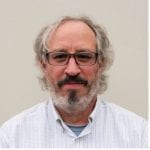 John Bolte
John Bolte <
John.Bolte@oregonstate.edu> is Professor and Head of the Biological & Ecological Engineering Department at Oregon State University, where he develops analyses and models of a variety coupled human and natural systems. HIs role in this project involves developing models of social network influence and incorporating those models into a larger model of the coupled human and natural systems influencing and affected by wildfire in our study areas.
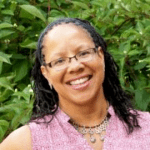 Lisa Gaines
Lisa Gaines <
Lisa.Gaines@oregonstate.edu> Lisa has more than 20 years of experience working with universities, government agencies, and NGOs to develop and manage multi-institutional natural resource and international development projects and programs. Within INR she leads multi-institutional research and science review teams, facilitates planning and policy dialogues, develops and implements policy research, leads multi-institutional proposal development teams.
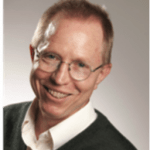 Dave Hulse
Dave Hulse <
dhulse@ufl.edu> is Professor in Landscape Architecture and Director of the Florida Institute for Built Environment Resilience at the University of Florida. He is a landscape architect and environmental planner who uses spatial decision support systems to evaluate alternative land and water use futures.
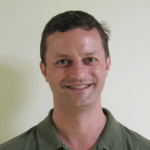 Max Nielsen-Pincus
Max Nielsen-Pincus <
nmax@pdx.edu> is Associate Professor and Chair of Environmental Science & Management at Portland State University. His interests focus on how policy impacts natural resource management and local communities. He is particularly interested in wildfire risk management, forest and fuels management, ecological restoration, and private land conservation, and how individuals and institutions make natural resource and environmental management decisions.
 Dwaine Plaza
Dwaine Plaza <
dplaza@oregonstate.edu> is Professor of Sociology in the School of Public Policy. He has written extensively on the topics of Caribbean migration within the international diaspora, gender, racism, social justice and inequality. His role in this project involves teaching and working with the undergraduate CHANS fellows and conducting primary research on smoke and wildfire that affects vulnerable communities in Central Oregon.
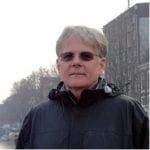 Brent Steel
Brent Steel <
bsteel@oregonstate.edu> is Professor of Political Science and Director of the Public Policy Graduate Program at Oregon State University. He teaches courses in science policy, public policy theory, rural policy, climate change politics, and energy policy. Professor Steel is also on the founding and executive boards for Vote Smart (https://votesmart.org), a nonpartisan and nonprofit voter education organization.
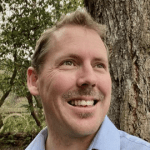 Cody Evers
Cody Evers <
cevers@pdx.edu> is a Research Associate at Portland State University. His research focuses on large natural disturbances such as wildfire and how society anticipates, manages, and recovers from these events. While a natural phenomenon, wildfires are increasingly framed by the social context in which they occur. As such, his research approaches wildfire and wildfire management as a coupled human and natural system, a concept exemplified by the wildland-urban interface.
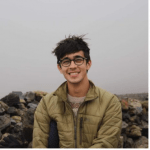 Colton Avila
Colton Avila <
avilaco@oregonstate.edu> is a first-year Masters student in the BEE department at Oregon State University. His work involves modelling socio-ecological networks and the influence that propagates through them. His research looks at how to optimize these networks for increased impact on landscape futures.
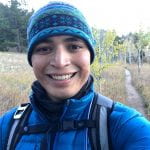 Alfredo Haro
Alfredo Haro <
haroal@oregonstate.edu> Alfredo Haro is a second-year Master of Public Policy student at Oregon State University and a graduate research assistant. His project roles include mentoring a group of historically underrepresented undergraduate students throughout the research process related to vulnerable communities and wildfires.
 Lindsey Kurtz
Lindsey Kurtz <
lkurtz@uoregon.edu> is a second-year Master of Landscape Architecture student at the University of Oregon. Her project role focuses on spatial analysis of vegetation data and assisting in collecting disturbance data from federal databases. Her research focuses on assessing ecological restoration in the Willamette Valley and creating remote sensing alternatives to field analysis of sites.
 Jun Hak Lee <junhakl@uoregon.edu
Jun Hak Lee <junhakl@uoregon.edu> is a geospatial data scientist and Career Instructor in the Department of Landscape Architecture at the University of Oregon. His research interests include the use of spatially explicit data to model carbon and water cycling in natural and built environments and the use of GIS and remote sensing technologies in ecological assessments and measurements of landscape performance
 Bart Johnson <bartj@uoregon.edu> is Professor Emeritus of Landscape Architecture at the University of Oregon. His training in agronomy, landscape architecture and ecology reflect his lifelong passion for integrating people and their use of the land with native ecosystems and evolutionary processes. His research is collaborative and interdisciplinary, with the goal of enhancing society’s capacity to adapt and innovate in the face of climate change and human development.
Bart Johnson <bartj@uoregon.edu> is Professor Emeritus of Landscape Architecture at the University of Oregon. His training in agronomy, landscape architecture and ecology reflect his lifelong passion for integrating people and their use of the land with native ecosystems and evolutionary processes. His research is collaborative and interdisciplinary, with the goal of enhancing society’s capacity to adapt and innovate in the face of climate change and human development. John Bolte <John.Bolte@oregonstate.edu> is Professor and Head of the Biological & Ecological Engineering Department at Oregon State University, where he develops analyses and models of a variety coupled human and natural systems. HIs role in this project involves developing models of social network influence and incorporating those models into a larger model of the coupled human and natural systems influencing and affected by wildfire in our study areas.
John Bolte <John.Bolte@oregonstate.edu> is Professor and Head of the Biological & Ecological Engineering Department at Oregon State University, where he develops analyses and models of a variety coupled human and natural systems. HIs role in this project involves developing models of social network influence and incorporating those models into a larger model of the coupled human and natural systems influencing and affected by wildfire in our study areas. Lisa Gaines <Lisa.Gaines@oregonstate.edu> Lisa has more than 20 years of experience working with universities, government agencies, and NGOs to develop and manage multi-institutional natural resource and international development projects and programs. Within INR she leads multi-institutional research and science review teams, facilitates planning and policy dialogues, develops and implements policy research, leads multi-institutional proposal development teams.
Lisa Gaines <Lisa.Gaines@oregonstate.edu> Lisa has more than 20 years of experience working with universities, government agencies, and NGOs to develop and manage multi-institutional natural resource and international development projects and programs. Within INR she leads multi-institutional research and science review teams, facilitates planning and policy dialogues, develops and implements policy research, leads multi-institutional proposal development teams. Dave Hulse <dhulse@ufl.edu> is Professor in Landscape Architecture and Director of the Florida Institute for Built Environment Resilience at the University of Florida. He is a landscape architect and environmental planner who uses spatial decision support systems to evaluate alternative land and water use futures.
Dave Hulse <dhulse@ufl.edu> is Professor in Landscape Architecture and Director of the Florida Institute for Built Environment Resilience at the University of Florida. He is a landscape architect and environmental planner who uses spatial decision support systems to evaluate alternative land and water use futures. Max Nielsen-Pincus <nmax@pdx.edu> is Associate Professor and Chair of Environmental Science & Management at Portland State University. His interests focus on how policy impacts natural resource management and local communities. He is particularly interested in wildfire risk management, forest and fuels management, ecological restoration, and private land conservation, and how individuals and institutions make natural resource and environmental management decisions.
Max Nielsen-Pincus <nmax@pdx.edu> is Associate Professor and Chair of Environmental Science & Management at Portland State University. His interests focus on how policy impacts natural resource management and local communities. He is particularly interested in wildfire risk management, forest and fuels management, ecological restoration, and private land conservation, and how individuals and institutions make natural resource and environmental management decisions. Dwaine Plaza <dplaza@oregonstate.edu> is Professor of Sociology in the School of Public Policy. He has written extensively on the topics of Caribbean migration within the international diaspora, gender, racism, social justice and inequality. His role in this project involves teaching and working with the undergraduate CHANS fellows and conducting primary research on smoke and wildfire that affects vulnerable communities in Central Oregon.
Dwaine Plaza <dplaza@oregonstate.edu> is Professor of Sociology in the School of Public Policy. He has written extensively on the topics of Caribbean migration within the international diaspora, gender, racism, social justice and inequality. His role in this project involves teaching and working with the undergraduate CHANS fellows and conducting primary research on smoke and wildfire that affects vulnerable communities in Central Oregon. Brent Steel <bsteel@oregonstate.edu> is Professor of Political Science and Director of the Public Policy Graduate Program at Oregon State University. He teaches courses in science policy, public policy theory, rural policy, climate change politics, and energy policy. Professor Steel is also on the founding and executive boards for Vote Smart (https://votesmart.org), a nonpartisan and nonprofit voter education organization.
Brent Steel <bsteel@oregonstate.edu> is Professor of Political Science and Director of the Public Policy Graduate Program at Oregon State University. He teaches courses in science policy, public policy theory, rural policy, climate change politics, and energy policy. Professor Steel is also on the founding and executive boards for Vote Smart (https://votesmart.org), a nonpartisan and nonprofit voter education organization. Cody Evers <cevers@pdx.edu> is a Research Associate at Portland State University. His research focuses on large natural disturbances such as wildfire and how society anticipates, manages, and recovers from these events. While a natural phenomenon, wildfires are increasingly framed by the social context in which they occur. As such, his research approaches wildfire and wildfire management as a coupled human and natural system, a concept exemplified by the wildland-urban interface.
Cody Evers <cevers@pdx.edu> is a Research Associate at Portland State University. His research focuses on large natural disturbances such as wildfire and how society anticipates, manages, and recovers from these events. While a natural phenomenon, wildfires are increasingly framed by the social context in which they occur. As such, his research approaches wildfire and wildfire management as a coupled human and natural system, a concept exemplified by the wildland-urban interface. Colton Avila <avilaco@oregonstate.edu> is a first-year Masters student in the BEE department at Oregon State University. His work involves modelling socio-ecological networks and the influence that propagates through them. His research looks at how to optimize these networks for increased impact on landscape futures.
Colton Avila <avilaco@oregonstate.edu> is a first-year Masters student in the BEE department at Oregon State University. His work involves modelling socio-ecological networks and the influence that propagates through them. His research looks at how to optimize these networks for increased impact on landscape futures. Alfredo Haro <haroal@oregonstate.edu> Alfredo Haro is a second-year Master of Public Policy student at Oregon State University and a graduate research assistant. His project roles include mentoring a group of historically underrepresented undergraduate students throughout the research process related to vulnerable communities and wildfires.
Alfredo Haro <haroal@oregonstate.edu> Alfredo Haro is a second-year Master of Public Policy student at Oregon State University and a graduate research assistant. His project roles include mentoring a group of historically underrepresented undergraduate students throughout the research process related to vulnerable communities and wildfires. Lindsey Kurtz <lkurtz@uoregon.edu> is a second-year Master of Landscape Architecture student at the University of Oregon. Her project role focuses on spatial analysis of vegetation data and assisting in collecting disturbance data from federal databases. Her research focuses on assessing ecological restoration in the Willamette Valley and creating remote sensing alternatives to field analysis of sites.
Lindsey Kurtz <lkurtz@uoregon.edu> is a second-year Master of Landscape Architecture student at the University of Oregon. Her project role focuses on spatial analysis of vegetation data and assisting in collecting disturbance data from federal databases. Her research focuses on assessing ecological restoration in the Willamette Valley and creating remote sensing alternatives to field analysis of sites. Jun Hak Lee <junhakl@uoregon.edu> is a geospatial data scientist and Career Instructor in the Department of Landscape Architecture at the University of Oregon. His research interests include the use of spatially explicit data to model carbon and water cycling in natural and built environments and the use of GIS and remote sensing technologies in ecological assessments and measurements of landscape performance
Jun Hak Lee <junhakl@uoregon.edu> is a geospatial data scientist and Career Instructor in the Department of Landscape Architecture at the University of Oregon. His research interests include the use of spatially explicit data to model carbon and water cycling in natural and built environments and the use of GIS and remote sensing technologies in ecological assessments and measurements of landscape performance